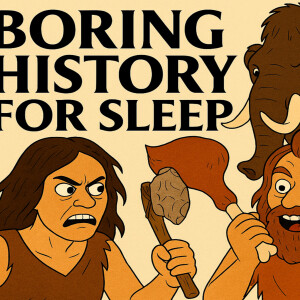

Episode List

The Rationalization of Society: Max Weber and the Rise of Rational Capitalism
In the episode, I outline Max Weber's idea of modern, rational capitalism. What defines it and what makes it rational? References:Carruthers, B. G., & Espeland, W. N. (1991). Accounting for Rationality: Double-Entry Bookkeeping and the Rhetoric of Economic Rationality. American Journal of Sociology, 97(1), 31–69.Hall, P. A., & Soskice, D. (2001). Varieties of Capitalism: The Institutional Foundations of Comparative Advantage. Oxford University Press.Swedberg, Richard (1998). Max Weber and the Idea of Economic Sociology. Princeton University Press. Weber, Max (2019). Economy and Society. A New Translation by Keith Tribe. Harvard University Press.Weber, Max (2002). The Protestant Ethic and the "Spirit" of Capitalism. Translated by Peter Baehr and Gordon C. Wells. Penguin.Weber, Max (1961): General Economic History. Translated by Frank H. Knight. New York: Collier Books

The Rationalization of Society: Max Weber on Domination, Law and the Rational State
In the third episode in my series about the rationalization of society, I will attend to another important manifestation of the rationalization process that Max Weber outlined: the rational state. What does it mean for states to be rational, and what is the relation between the rational state and liberal democracies? Let’s find out.In this context, I will also explain and exemplify Weber's famous three types of legitimate domination, that will help us deepen our understanding of Weber's thinking. References:Hoyer, Katja (2021): Blood and Iron: The Rise and Fall of the German Empire 1871-1918. Cheltenham: The History Press.Kershaw, Ian (2001 [1998]). Hitler. 1889-1936: Hubris. Penguin.Weber, M. & Swedberg, R. (2020) Essays in Economic Sociology. 1st edition. Princeton: Princeton University Press.Weber, Max (2019): Economy & Society. A New Translation. Cambridge, Massachusetts: Harvard University Press.Weber, M. (1970 [1948]): From Max Weber: Essays in Sociology. Translated and edited by Gerth, H. H., & Mills, C. W. London: Routledge & Kegan Paul.

The Rationalization of Society: Max Weber on Modern Bureaucracy
In this episode we are getting serious. We are going to talk about Max Weber's theory of bureaucracy and we are going to find out why bureaucracy is one of the most important rationalizing forces in the rationalized society. And please be careful, you might even learn something about the history of Prussia and the German Empire. Summary of the previous episode and introduction to this one starts at minute 2.14.Section 1 starts at minute 6.28.Section 2 starts at minute 23.50.Section 3 starts at minute 39.09.Sources:Blau, Peter. M. (1956). Bureaucracy in Modern Society. New York: Random House. Clark, Christopher (2007 [2006]). Iron Kingdom: The Rise and Downfall of Prussia, 1600-1947. Penguin. Cochrane, Glynn. (2018). Max Weber’s Vision for Bureaucracy A Casualty of World War I. Springer International Publishing. Coser, Lewis A. (1971). Masters of Sociological Thought: Ideas in historical and social context. New York: Harcourt Brace Jovanovich.Dorn, Walter L. (1931). The Prussian Bureaucracy in the Eighteenth Century. Political Science Quarterly, 46(3), 403–423.Kaesler, Dirk. (2017). Universal rationalization: Max Weber’s great narrative. Irish Journal of Sociology, 25(3), 315-323. Kiser, Edgar, and Joachim Schneider. “Bureaucracy and Efficiency: An Analysis of Taxation in Early Modern Prussia.” American Sociological Review 59, no. 2 (1994): 187–204. Mommsen, Wolfgang J. (2000). Max Weber’s “Grand Sociology”: The Origins and Composition of Wirtschaft und Gesellschaft: Soziologie. History and Theory, 39(3), 364–383. Parsons, Talcott (1968 [1937]). The Structure of Social Action. Volume 2: Weber. New York: The Free Press. Ritzer, George. (2015). The McDonaldization of Society. 8th Edition. SAGE Publications Senigaglia, Cristiana. (2011). Max Weber and the parliamentary bureaucracy of his time, Parliaments, Estates & Representation, 31:1, 53-66, DOI: 10.1080/02606755.2011.560753 Mashal, M. (2024, March 16). India’s 2024 General Election: What to Know. The New York Times. Retrieved from https://www.nytimes.com/2024/03/16/world/asia/india-2024-election.html?searchResultPosition=14 Max Weber, The Theory of Economic and Social Organization, translated by A.M. Henderson and Talcott Parsons, New York, Oxford University Press Weber, Max (2019): Economy & Society. A New Translation. Cambridge, Massachusetts: Harvard University Press. Weber, Max. (2017). Methodology of Social Sciences. First edition. London: Routledge, Taylor and Francis Group. Yoon, J., & Kumar, H. (2024, April 17). Why Do Elections in India Take So Long? The New York Times. Retrieved from https://www.nytimes.com/2024/04/17/world/asia/india-elections-long-explainer.html

The Rationalization of Society: Prologue
In this podcast series, I want to take a deep dive into the rationalization of society. In this first episode, I want to set the stage for this series and answer a simple question: What do sociologists mean when they speak of the rationalization of society? This episode is a general introduction to the topic and I’ve kept it as short as possible so you can smoothly immerse yourself in this complex phenomenon. If you enjoy it, please be sure to follow this show on your preferred streaming platform so you don’t miss out on the next one.

Surrogacy, Technology, Economics - An Interview with Ingvill Stuvøy
In this episode, I talk to Ingvill Stuvøy about surrogacy, technology and the economics behind it...and about Karl Marx. Yes!
Create Your Podcast In Minutes
- Full-featured podcast site
- Unlimited storage and bandwidth
- Comprehensive podcast stats
- Distribute to Apple Podcasts, Spotify, and more
- Make money with your podcast












